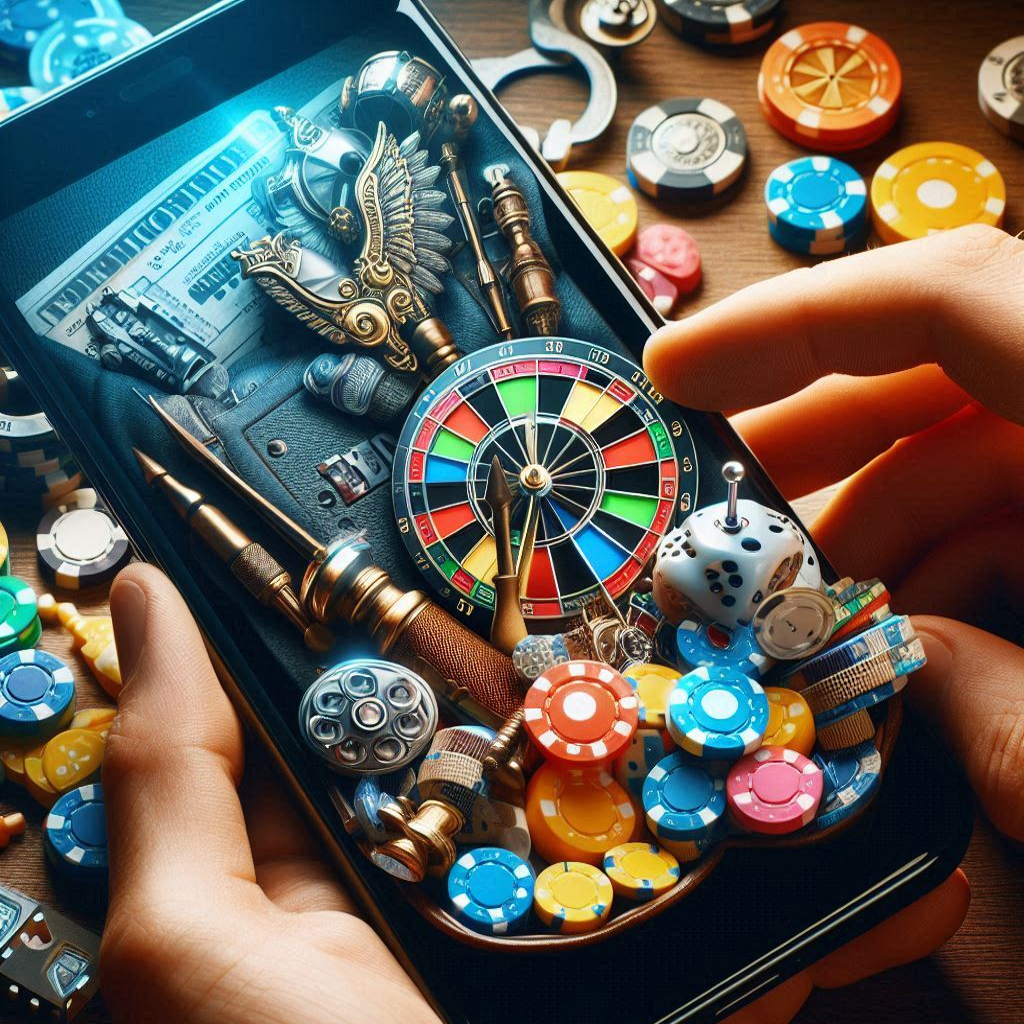In the world of gambling, it’s not just luck that leads to success. Understanding the psychology behind winning can make a big difference. This article explores some simple strategies that successful gamblers use to stay ahead. By learning about these methods, you can improve your own gambling experience.
First, let’s talk about ‘bankroll management.’ This means controlling how much money you are willing to spend while gambling. Winners often set limits for themselves to avoid losing too much. Another important term is ’emotional control.’ Good gamblers keep their feelings in check. They don’t let anger or excitement lead to bad choices. When you can stay calm, you can make better decisions.
Next, we have ‘risk assessment.’ Successful gamblers know when to take risks and when to play it safe. They study the games they play and understand their odds, which is called ‘probability.’ Knowing the odds helps them make smart bets.
Finally, let’s consider ‘strategic thinking.’ This involves planning ahead and thinking about possible outcomes. Winners often create a strategy based on their experience and knowledge of the game. They don’t rely solely on luck; they use their brains to outsmart the game.
In summary, gambling successfully is not only about chance but also about understanding how to think and manage your money. By focusing on bankroll management, emotional control, risk assessment, and strategic thinking, anyone can improve their chances of being a successful gambler.
Understanding Gambling Psychology
Gambling is a popular activity that many people engage in for fun. However, some people approach gambling with a mindset aimed at winning. Understanding the psychology behind gambling is key to developing strategies for success. Let’s explore some important aspects.
Key Terms in Gambling Psychology
- Probability: The likelihood of a certain outcome occurring. In gambling, this helps players assess their chances of winning.
- Risk-taking: The willingness to engage in an action that can lead to losing something, often money.
- Emotional Control: The ability to manage one’s feelings in order to make rational decisions.
- Bankroll Management: The practice of managing your gambling funds to avoid losing it all at once.
Common Psychological Traits of Successful Gamblers
| Discipline | The ability to stick to a game plan and avoid impulsive decisions. |
| Positive Mindset | A belief that winning is possible, which helps maintain motivation. |
| Analytical Thinking | Using data and logic to make informed gambling choices. |
Strategies to Increase Your Chances of Winning
- Set Limits: Decide in advance how much money you are willing to spend and stick to it.
- Choose Games Wisely: Some games have better odds than others. Learn which games you have the best chances of winning.
- Practice Bankroll Management: Avoid risking too much money at once. Spread your cash across multiple games or sessions.
- Stay Calm: Keeping your emotions in check can help you make better decisions. “Emotion can cloud your judgment and lead to poor choices,” says a gambling expert.
- Learn from Experience: Analyze your wins and losses to understand what strategies work for you.
The Role of Luck and Skill
Many people wonder about the balance between luck and skill in gambling. While luck plays a role in many games, skilled players can use strategies to improve their odds. As one expert noted, “Skill can make a significant difference over time, especially in games like poker where knowledge and psychology matter.”
Developing a Winning Mindset
A winning mindset involves belief in your ability to succeed and resilience when faced with losses. It’s essential to practice positive self-talk and visualize successful outcomes. You can strengthen your winning attitude with the following tips:
- Visualization: Imagine yourself making successful bets.
- Affirmations: Use positive statements about your gambling skills to boost confidence.
The Importance of Self-Reflection
After each gambling session, take some time to reflect on your performance and choices. Ask yourself questions like:
- What strategies worked for me?
- What mistakes did I make?
- How did I feel during my session?
The Risks of Gambling
It’s important to remember that gambling can lead to significant losses. A responsible approach can prevent issues such as gambling addiction. “Gambling should be a source of entertainment, not a way to make money,” shares a mental health specialist.
Final Thoughts
By understanding the psychological aspects of gambling and implementing effective strategies, you can enhance your chances of success. Remember to play responsibly and seek help if gambling becomes a problem for you or someone you know.
What are the key psychological traits of successful gamblers?
Successful gamblers often exhibit traits such as discipline, confidence, emotional control, and the ability to assess risk accurately. They understand the importance of maintaining a balanced mindset and do not let emotions dictate their decisions.
How important is bankroll management in gambling success?
Bankroll management is crucial for long-term success in gambling. It helps players set limits, avoid chasing losses, and ensure they can continue playing without risking their financial stability. Establishing clear budgets and sticking to them increases the chances of enjoying gambling responsibly.
Can mindset really affect gambling outcomes?
Yes, mindset significantly impacts gambling outcomes. A positive and focused mindset allows gamblers to make better decisions, while a negative or anxious mindset can lead to impulsive choices and mistakes. Staying calm and composed is essential for successful gambling.
Are there specific strategies to develop a winning mentality?
To cultivate a winning mentality, gamblers can practice visualization techniques, set clear goals, and maintain a journal of their experiences. Reflecting on both wins and losses helps identify patterns and enhance decision-making skills, ultimately leading to a more successful gambling approach.
How can one manage emotional responses during gambling?
Managing emotional responses requires self-awareness and techniques such as taking breaks, practicing deep breathing, and recognizing triggers for stress or excitement. By developing these skills, gamblers can reduce the risk of making impulsive decisions based on emotions.
Is it beneficial to have a gambling strategy, and if so, what are some examples?
Having a gambling strategy can be very beneficial. Some examples include the Martingale system, setting win/loss limits, or focusing on games with better odds. A well-thought-out strategy can help guide decisions and reduce the likelihood of losses.
How can social influences affect gambling behavior?
Social influences play a significant role in gambling behavior. Friends and family can impact a person’s choices and attitudes towards gambling, either positively or negatively. It’s essential to surround oneself with supportive and responsible individuals who foster healthy gambling habits.
What role does patience play in gambling success?
Patience is a vital component of gambling success. It allows players to wait for the right moments to make their bets and prevents them from acting impulsively. Successful gamblers know that not every session will be profitable and that it takes time to see favorable results.
Can the environment impact gambling performance?
The environment can significantly influence gambling performance. A distraction-free and comfortable setting can help maintain focus and enhance decision-making abilities. Conversely, a noisy or chaotic environment may lead to mistakes and poor judgment.
What is the importance of self-reflection in gambling?
Self-reflection is crucial for improving gambling habits. By analyzing past experiences, successes, failures, and emotional responses, players can identify areas for improvement and develop strategies to enhance their overall performance and enjoyment.


